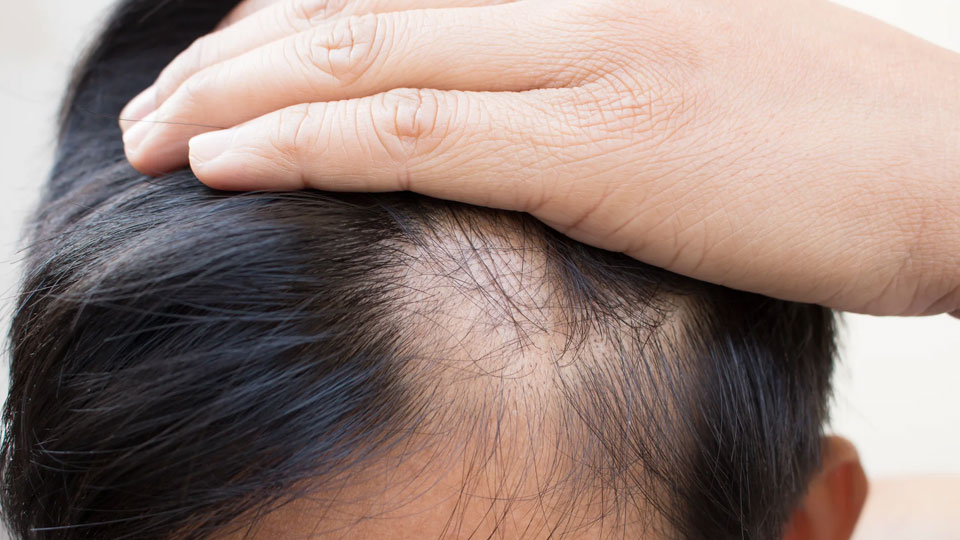Alopecia / Hairloss Treatment In Mumbai

What is Alopecia?
Alopecia is a condition characterized by hair loss. This loss can occur in patches on the scalp (alopecia areata), lead to widespread thinning (androgenetic alopecia), or result in total baldness (alopecia totalis or universalis). Some forms of alopecia may also affect body hair, eyebrows, or eyelashes.
Causes of Alopecia
- Genetics: The most common cause of alopecia is genetics.
- Autoimmune Disorders: Autoimmune condition is where the immune system attacks and destroys hair follicles, leadinf to hair loss.
- Medical Conditions: Some medical conditions such as thyroid disorders, hormonal imbalances, and scalp infections can contribute to alopecia
- Stress and Trauma: Physical or mental stress can also be also a trigger to alopecia.
- Medications: Some medications, like chemotherapy drugs, can cause temporary hair loss known as anagen effluvium.
- Nutritional Deficiencies:Insufficient consumption of essential nutrients like iron, vitamin D, and protein can affect hair health and contribute to alopecia.
Symptoms of Alopecia
- Patchy hair loss
- Thinning hair
- Complete baldness
- Changes in hair texture
Prevention of Alopecia
- Maintain a balanced diet
- Manage stress
- Avoid harsh hairstyles and treatments
- Protect your scalp
- Consult a dermatologist
When to See a Doctor
It’s essential to see a doctor if you experience any of the following concerning signs related to alopecia:
- Sudden or rapid hair loss
- Patchy hair loss
- Scalp irritation or inflammation
- Hair loss in children
FAQs
No, alopecia is not contagious. It is a non-communicable condition caused by various factors such as genetics, autoimmune disorders, and medical conditions.
The treatment and management of alopecia depend on the type and cause of hair loss. While some forms of alopecia, like alopecia areata, may resolve spontaneously or with treatment, others such as androgenetic alopecia may require ongoing management to reduce hair loss and boost hair growth.
Treatment options for alopecia vary and may include medications like minoxidil or finasteride for androgenetic alopecia, corticosteroid injections or topical immunotherapy for alopecia areata, and hair transplant surgery for severe cases of baldness. It’s important to consult a dermatologist for personalized treatment recommendations.
Yes, alopecia can impact mental health and emotional well-being, leading to feelings of self-consciousness, anxiety, or depression, especially in cases of significant hair loss. Seeking support from healthcare providers, counselors, or support groups can be beneficial for coping with the emotional effects of alopecia.
Yes, GFC treatment can be combined with other therapies such as topical medications, laser treatments, or hair transplant surgeries for comprehensive hair restoration plans tailored to individual needs.
Discover the best Alopecia/Hair Loss Treatment in Mumbai at Alana Skin Hair & Laser Clinic by Dr. Sweta Sinha in Ghatkopar, Tilak Nagar,Chembur.
